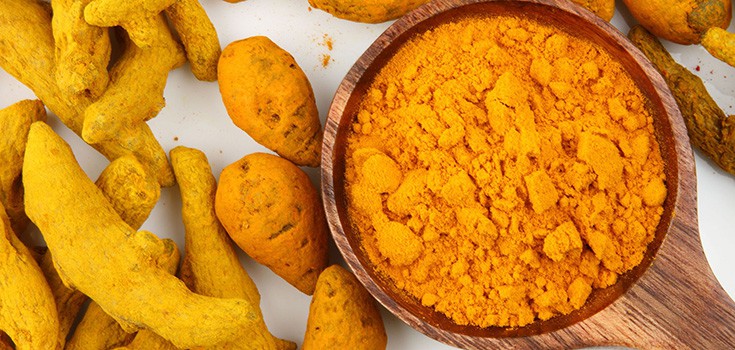Curcumin Matches Exercise in Slowing Aging, Protecting the Heart

It is well established that exercise helps to preserve youth and protect the heart from aging, but it certainly isn’t the one protector out there. According to 3 different studies carried out by researchers from the University of Tsukuba in Japan, the spice turmeric may be just as effective as moderate exercise at preventing aging and boosting heart health.
For the first of the 3 randomized, double-blind, and placebo-controlled trials, researchers divided 32 postmenopausal women into 3 separate groups to examine the effects of curcumin and exercise on the heart. One group was given curcumin orally, the second group partook in moderate exercise training, and the third group did nothing at all. The study lasted 8 weeks.
After measuring participants’ vascular endothelial function – a key indicator of overall cardiovascular health – at the start and end of the study, they found that the control group saw no improvement while the curcumin group and exercise group saw equal, notable improvement. The study abstract concludes with:
“Our results indicated that curcumin ingestion and aerobic exercise training can increase flow-mediated dilation in postmenopausal women, suggesting that both can potentially improve the age-related decline in endothelial function.”
In the second of the 3 studies, researchers examined curcumin’s effects on another key measure in cardiovascular health known as arterial compliance. For the study, 32 women were split into 4 groups:
- One group (control) received a placebo pill
- Another received curcumin
- The third group engaged in an exercise routine while also taking a placebo pill
- And the fourth group exercised and supplemented with curcumin.
The control group saw no significant improvement, while both the exercise group and curcumin group saw equally significantly improvement. Groups exercising while also taking the supplements saw the greatest improvement.
Finally, researchers in the third study set out to test their hypothesis that curcumin and exercise “might lower the age-related increase in [the heart’s] left ventricular (LV) after load.” After assigning 45 individuals in the same four different groups used in the second study, the researchers found once again that exercise and curcumin supplementation produced significant increases in heart health.
“Regular ingestion of curcumin could be a preventive measure against cardiovascular disease in postmenopausal women. Furthermore, our results suggest that curcumin may be a potential alternative … for patients who are unable to exercise,” the University of Tsukuba team concluded.
Past research has also pointed out that
Are you taking advantage of the health benefits of turmeric?

The results from taking Turmeric daily are incredible. It's definitely a small addition to your vitamin regimen that's worthwhile. It's also delish to cook with!!!
How do you know how much to take if you aren't adding it to food? Can you buy it in capsule form?
I just take a 800mg a couple of times a day. I've taken more. It doesn't bother me if I do take more than this dose (I'm 5'3, 120lbs). Check out this site http://www.puritan.com/?cm_re=TopNav-_-Link-_-PP_… it's where I get all of my vitamins.
Thank you SO much for this article. It is really helpful. I have read so many great things about tumeric and curcumin that I started taking it. This is wonderful icing on the cake. Ya'll at Natural Society do a fantastic job at giving us articles that are really helpful. Thank you very much and please keep up the great work!
This is a great article. I have extensive documentation, medical reports, clinical studies, direct knowledge of results from doctor testing and results from my own personal experience from using turmeric (curcumin) to support the claim that "Turmeric (curcumin) may have the most health benefits of any (single) natural herb on the planet".
Thanks for this info; I had fusion on my neck a decade ago and with arthritis, it hurts to do much of anything. A neurologist asked me what medications I take and he didn't even know what it was. He couldn't believe I wasn't on all kinds of painkillers.
Twenty three years ago I had a quadruple by-pass and subsequently suffered from neurological problems which seligiline helped to stabilise but did not cure. I was keen to get off medication but the symptoms always returned. I discovered lately that when taking turmeric that there was no need to take the selegiline so I am now prescription medication free. It is an amazing herb.
Stupid question? Where would you buy this? In a spice isle,or health food store?
Yes, I have been hearing so much about the scientific verified results of this herb from Sayer Ji.
Good article. Not forgetting other work on turmeric, such as on rejuvenating the brain from neuronal damage , and the rejuvenation of the Skin after sun damage, keratosis etc.
What’s your dosage. I’m on 2 teaspoons as day, in my blended breakfast
Pity you didn’t keep arteries clean, obviously following the cholesterol baloney of NIH.